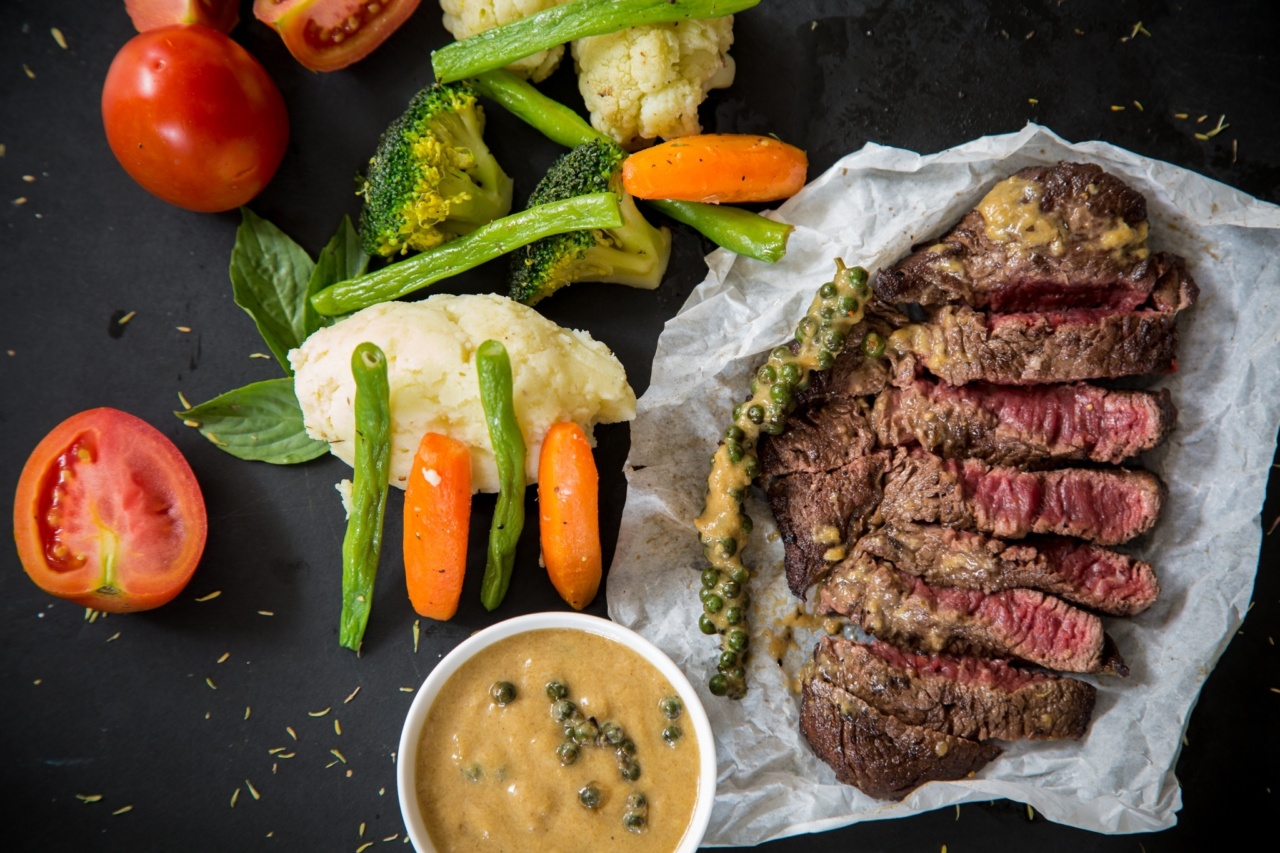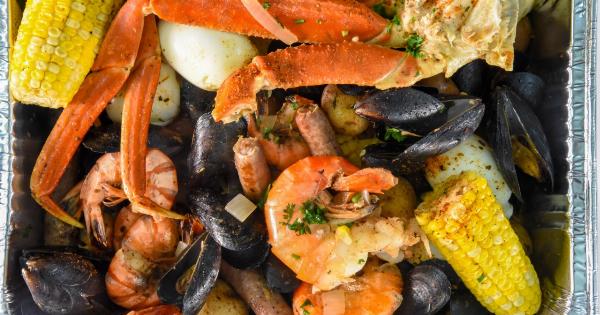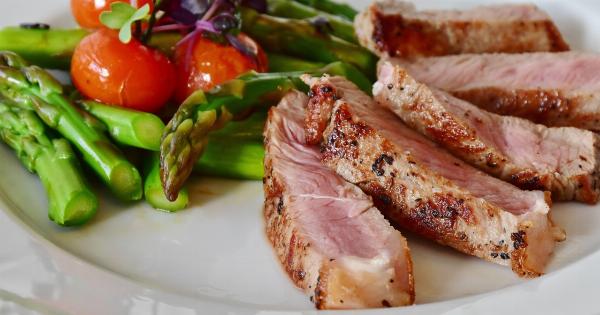Protein is an essential nutrient that plays a crucial role in building, repairing, and maintaining tissues in the body.
While meat has long been considered a primary source of protein, there are plenty of amazing herbal protein sources available for vegetarians and those looking to reduce their meat intake. These plant-based proteins not only provide an abundance of essential amino acids, but they also come with additional health benefits. Here are 30 incredible herbal protein sources that can help you avoid meat while enjoying a nutrient-rich diet.
1. Quinoa
Quinoa is a versatile and nutritious grain that is considered a complete protein source, meaning it contains all nine essential amino acids. It is also high in fiber and several essential nutrients, including magnesium, iron, and potassium.
2. Lentils
Lentils are an excellent source of plant-based protein, offering around 18 grams of protein per cooked cup. They are also rich in fiber, folate, iron, and potassium.
3. Chia Seeds
Chia seeds are small but packed with nutrients. They provide around 4 grams of protein per ounce and are also rich in omega-3 fatty acids, fiber, calcium, and antioxidants.
4. Hemp Seeds
Hemp seeds are a high-quality plant-based protein source, containing all nine essential amino acids. They are also rich in healthy fats, including omega-3 fatty acids, and provide a good amount of fiber.
5. Spirulina
Spirulina is a blue-green algae that is incredibly rich in protein, offering around 8 grams per 2 tablespoons. It is also packed with vitamins, minerals, and antioxidants, making it a superfood for overall health.
6. Edamame
Edamame, young soybeans, are not only a delicious snack but also a great source of protein. They contain around 17 grams of protein per cooked cup and are rich in fiber, folate, and vitamin K.
7. Chickpeas
Chickpeas, also known as garbanzo beans, are an excellent plant-based protein source. They provide around 15 grams of protein per cooked cup and are also high in fiber and several essential nutrients.
8. Tempeh
Tempeh is a fermented soy product with a nutty flavor and firm texture. It is an exceptional source of protein, with around 31 grams per cup, as well as a good source of probiotics and essential minerals.
9. Chlorella
Chlorella is another type of algae that offers an impressive protein content of about 16 grams per 3 tablespoons. It is also packed with vitamins, minerals, and antioxidants.
10. Black Beans
Black beans are a staple in many vegetarian and vegan diets. They provide around 15 grams of protein per cooked cup and are also high in fiber, folate, and various minerals.
11. Pumpkin Seeds
Pumpkin seeds are not only a tasty snack but also a good source of plant-based protein, offering around 8 grams per ounce. They are rich in healthy fats, magnesium, iron, and zinc.
12. Amaranth
Amaranth is an ancient grain that is gluten-free and highly nutritious. It contains about 9 grams of protein per cooked cup and is also rich in fiber, calcium, and several vitamins and minerals.
13. Green Peas
Green peas are not just a popular side dish but also a decent source of plant-based protein. They provide around 8 grams of protein per cooked cup and are rich in fiber, vitamin C, and vitamin A.
14. Greek Yogurt
Greek yogurt is a creamy and protein-packed dairy product that can be a great meat substitute. It offers around 23 grams of protein per cup and is also rich in calcium, probiotics, and vitamins B12 and D.
15. Seitan
Seitan, also known as wheat meat or wheat gluten, is made from gluten, the protein portion of wheat. It is an excellent source of plant-based protein, providing around 25 grams per 3.5 ounces.
16. Buckwheat
Buckwheat is a nutritious gluten-free grain alternative. It contains about 6 grams of protein per cooked cup and is also high in fiber, magnesium, and various essential nutrients.
17. Tofu
Tofu is a staple in many vegetarian and vegan diets, offering around 20 grams of protein per cup. It is also a good source of iron, calcium, and essential amino acids.
18. Almonds
Almonds are a nutrient-dense nut that also provides a decent amount of protein. They offer about 6 grams of protein per ounce and are rich in healthy fats, vitamin E, and magnesium.
19. Sunflower Seeds
Sunflower seeds are a crunchy and nutritious snack that contains around 5 grams of protein per ounce. They are also packed with healthy fats, fiber, vitamin E, and various essential minerals.
20. Brown Rice
Brown rice is a whole grain that not only serves as a source of carbohydrates but also provides some protein. It contains approximately 5 grams of protein per cooked cup and is also high in fiber and several essential minerals.
21. Wild Rice
Wild rice is a nutritious grain that is higher in protein compared to traditional rice varieties. It provides around 7 grams of protein per cooked cup and is also rich in fiber, vitamin B, and magnesium.
22. Cottage Cheese
Cottage cheese is a low-fat cheese product that is high in protein. It offers around 14 grams of protein per half cup and is also a good source of calcium, phosphorus, and vitamin B12.
23. Tempeh
Tempeh is a fermented soy product with a nutty flavor and firm texture. It is an exceptional source of protein, with around 31 grams per cup, as well as a good source of probiotics and essential minerals.
24. Cashews
Cashews are a delicious and creamy nut that also provides a moderate amount of protein. They offer about 5 grams of protein per ounce and are rich in healthy fats, vitamins, and minerals.
25. Peanut Butter
Peanut butter is a popular spread that is not only tasty but also a decent source of protein. It provides around 8 grams of protein per 2 tablespoons and is also high in healthy fats, fiber, and essential minerals.
26. Oatmeal
Oatmeal is a whole-grain breakfast option that offers a moderate amount of protein. It contains around 6 grams of protein per cooked cup and is also high in fiber, vitamins, and minerals.
27. Green Leafy Vegetables
Green leafy vegetables, such as spinach, kale, and collard greens, are packed with nutrients, including protein.
While their protein content is not as high as other sources on this list, they contribute to overall protein intake and are rich in vitamins, minerals, and antioxidants.
28. Soy Milk
Soy milk is a plant-based milk alternative that is fortified with protein. It provides around 8 grams of protein per cup and is also a good source of calcium, vitamin D, and other essential nutrients.
29. Pinto Beans
Pinto beans are a popular legume that offers a good amount of protein. They provide around 15 grams of protein per cooked cup and are also rich in fiber, folate, and various minerals.
30. Macadamia Nuts
Macadamia nuts are a creamy and delicious nut that contains some protein. They offer around 2 grams of protein per ounce and are also high in healthy fats, including monounsaturated fats, as well as vitamins and minerals.





























